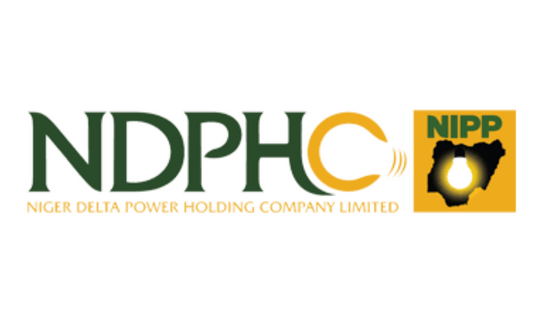The Niger Delta Power Holding Company has stated that it is making concerted efforts to recover outstanding debts from its bilateral customers.
The NDPHC Managing Director, Jennifer Adighije, said this at the company’s 2024 End-of-Year and Award Ceremony held on Saturday in Abuja.
She said this effort is to shore up its liquidity and boost its efficiency.
Adighije said the power sector is burdened by cash flow challenges, which affects the ecosystem, impacting power generation, transmission, and distribution companies.
A document obtained by our correspondent from the company analysing the debts revealed that N24.88bn is owed by Nigeria Electricity Liability Management Company on legacy assets yet to be settled, while the Nigerian Bulk Electricity Trading only pays 35 per cent of its invoice every month and accumulating debts.
However, the MD said the debt recovery has allowed the company to address its obligations to gas suppliers, who account for a significant amount of the cost of power generation.
“It’s important to know that the sector is characterised by cash issues across all the subsectors you know and across the entire ecosystem and it reverberates,” she said.
“So the Discos are claiming to be owed heavily which is why the bulk electricity trader does not settle 100 per cent of our invoices. So the bulk trader settles about 30 to 35 per cent on our invoices and you must also bear in mind that 65 to 70 per cent of our cost of generation goes to gas supply so in turn we also owe our gas suppliers.
“So by improving our liquidity, we can address some of our debts, some of the exposure that we have to our gas supplies, and we can settle some of our gas to meet our gas obligations to a large extent.”
Adighije also said the long-standing issue of stranded energy due to excess generation capacity relative to demand, is being addressed.
According to the NDPHC boss, the company has adopted a strategy to address surplus energy.
The government-owned firm, in alignment with the July 25 directive from the Nigerian Electricity Regulatory Commission, which encourages direct energy sales to eligible customers, said it has allocated its stranded power capacity to bilateral and eligible customers.
Adighije also said off-takers who have submitted expressions of interest for the stranded energy of the project will finalise their power purchase agreements next year.
She also said some off-takers have expressed interest in acquiring up to 100 megawatts of capacity each.
“We have always had a generation capacity over demand and the demand is coming from the downstream markets,” she said.
“So, we must understand that the market is driven by demand which has created a lot of stranded energy for us because we have energy generated more than demand.
“But with this new management, our strategy would unlock that stranded energy by dedicating significant portions of that energy now to eligible customers and bilateral trading arrangements under the order given on July 25th by the NERC directing us now to trade bilaterally with eligible customers so that should be able to address our stranded capacity.
“We already have a lot of off-takers that have sent expressions of interest like Zenith Point is supposed to off-take about 100 megawatts. We have auctioned about 100 megawatts, as well as several other potential PPAs that we are likely to sign in 2025.
“So that would address to a large extent our stranded capacity challenge talking about 2025.”
Adighije said efforts are being made through collaboration to unbundle the bottlenecks that are being faced in the sector, especially in the area of liquidity challenges “as the president has already promised to come up with some initiatives that will improve our outlook for 2025”.
Recall that President Bola Tinubu appointed Adighije on the 19th of August 2024, and she assumed office, alongside the new management team on the 26th of August.
